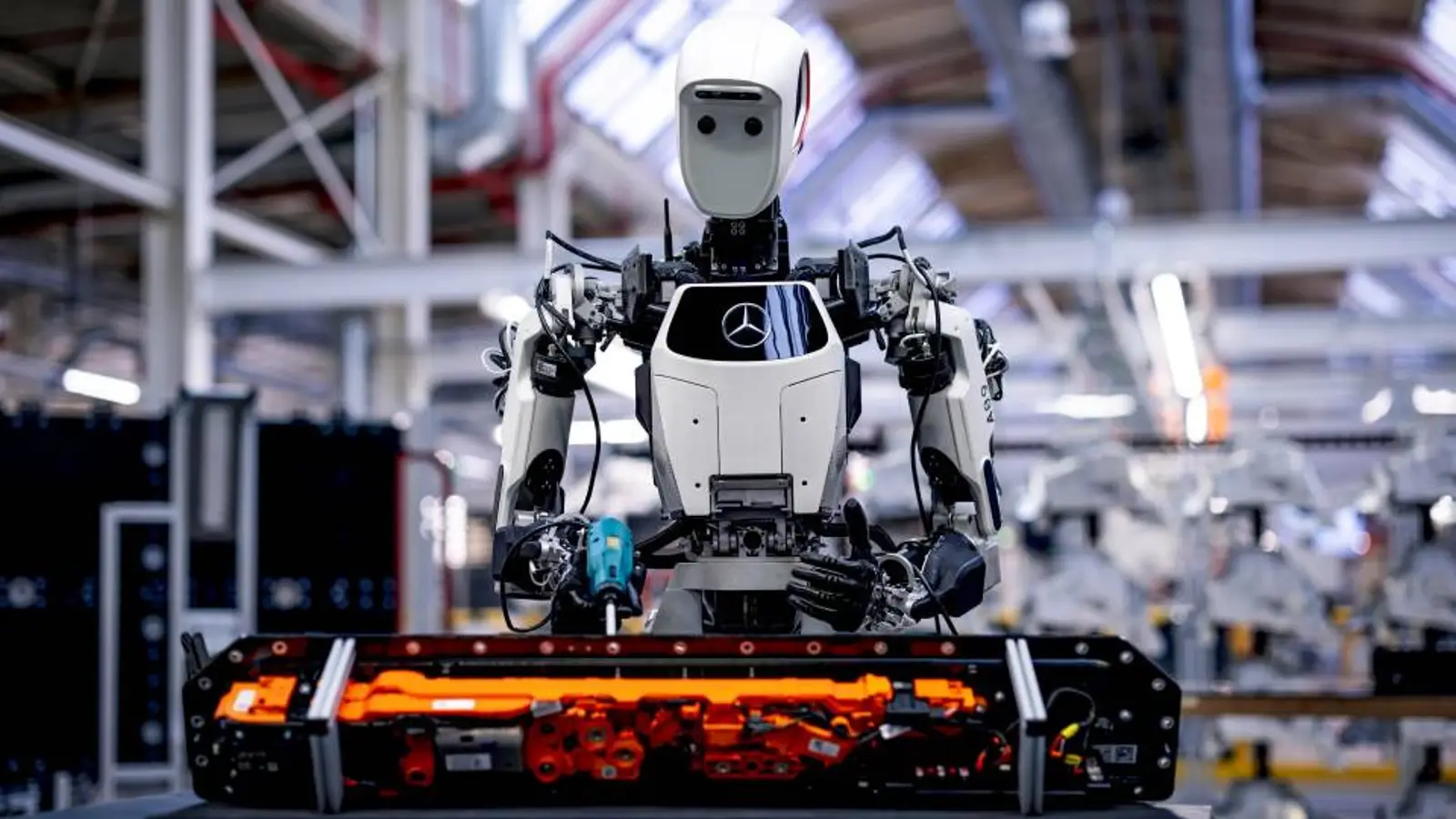Mercedes-Benz Advances Production with AI and Humanoid Robots at Berlin Factory

Mercedes-Benz reveals AI and humanoid robots at its Berlin Digital Factory Campus, testing new production methods and axial-flux motors for future manufacturing.
Berlin-Marienfelde is stepping into the spotlight as Mercedes-Benz's global hub for production innovation. The German automaker has announced a major transformation of its Digital Factory Campus, bringing artificial intelligence, humanoid robots, and cutting-edge electric motor technologies to the forefront of its manufacturing future.
At the heart of this transformation is the expansion of the MO360 digital ecosystem. The latest upgrades include AI-powered tools like the Digital Factory Chatbot Ecosystem and advanced language models. Now, production staff can access crucial databases in real time—simply ask a question about machine maintenance or assembly methods and receive an instant, precise answer in their native language.
The robotics front is equally impressive. Mercedes-Benz is integrating Apollo—a humanoid robot developed by Texas-based Apptronik. Standing 5'8" tall and weighing 160 pounds, Apollo is designed to handle physically demanding and repetitive tasks. Its first mission is intralogistics—transporting components and performing initial quality checks. Apollo is already collecting data in real factory conditions and learning from Mercedes-Benz workers through teleoperation and augmented reality. The company is now working toward enabling fully autonomous operations.
Apptronik has also partnered with Google DeepMind to advance humanoid robotics, combining best-in-class artificial intelligence with cutting-edge hardware. This collaboration aims to develop robots that can adapt to dynamic environments and assist people in industrial settings—bringing Mercedes-Benz closer to intelligent production companions.
Meanwhile, Berlin-Marienfelde is preparing for another leap. Next year, it will start producing axial-flux electric motors—compact, lightweight, and incredibly powerful. These motors deliver twice the power density of traditional designs while slashing weight, directly boosting vehicle performance and range. Mercedes-Benz engineers have developed dozens of new production methods, combining laser technology with AI-driven processes, securing over 30 patent applications in the process.
Mercedes-Benz emphasizes that AI and robotics are not just about speed or cost savings—they are about making production smarter and more sustainable. These technologies promise to reduce energy consumption, minimize waste, and free human workers from repetitive tasks, allowing them to focus on innovation and skills development. The company sees the Berlin Digital Factory Campus as a key player in the digitalization of automotive manufacturing, continuously driving forward new advancements in production technologies.
Mark Havelin
2025, Mar 18 16:46


